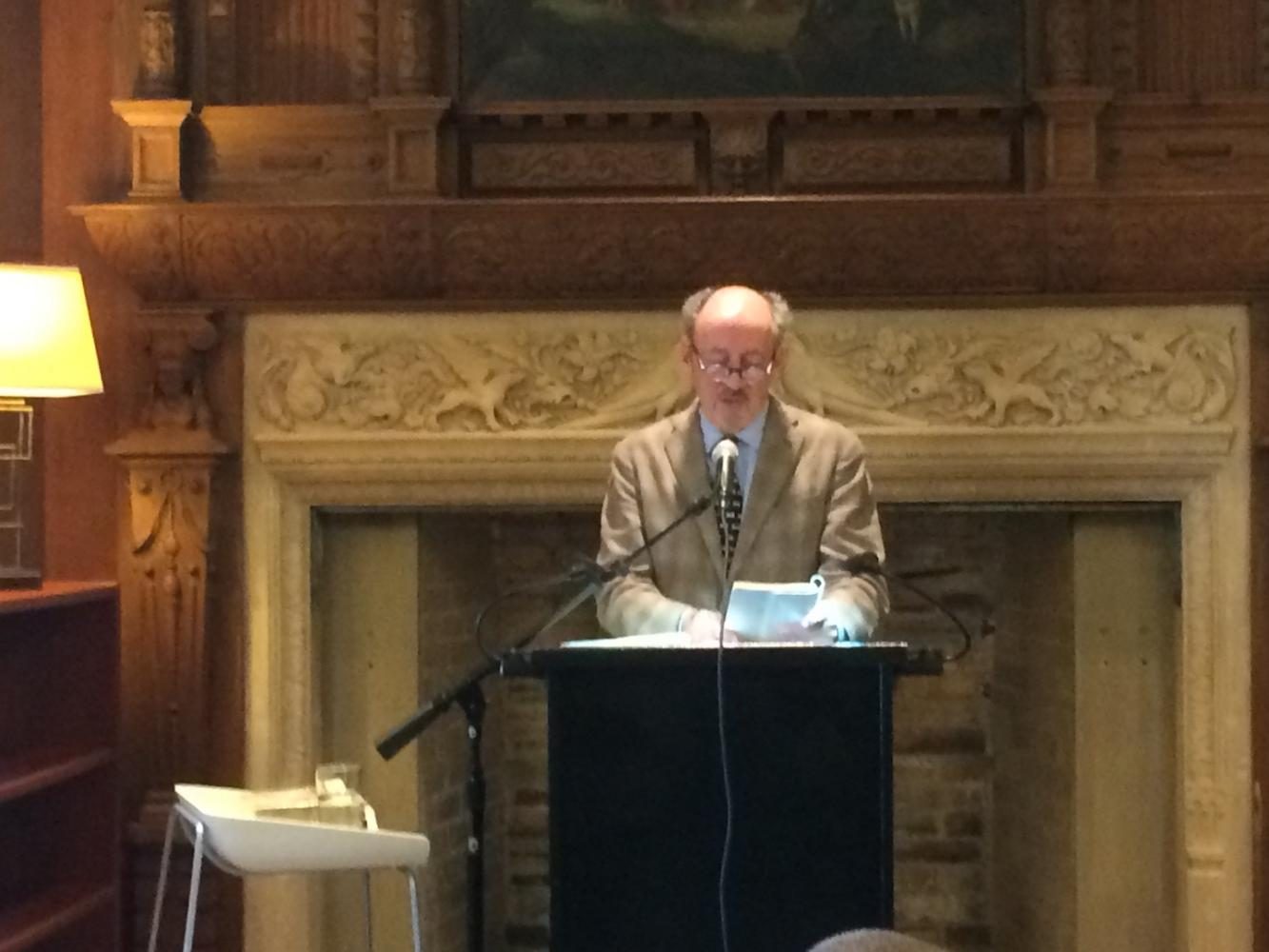Former US Poet Laureate speaks to community
Former U.S. Poet Laureate Billy Collins reads a selection of his work at an evening event for the school community. Collins, famous for his simple poems with gentle critiques of everyday life, visited campus today.
May 10, 2017
The school community heard a two-time United States Poet Laureate share his thoughts on men who wear snoods, lanyards, Irish spiders, the British and breakfast at a special assembly and evening reading today.
Poet Billy Collins, dubbed “the most popular poet in America,” visited campus, reading several of his poems at a daytime assembly, answering questions from Student Body representatives, and participating in small group sessions with students.
“The blending of the heart and the darker sides of life which come in unexpected places sets Collins apart,” English teacher Julia Arce said. “He takes us on a roller coaster of existence that really makes us feel like he is speaking directly to us.”
Collins is known for colloquial, intimate poems that begin with simple topics — such as a grape — but which quickly develop into gentle, satiric, or amusing observations on poetry and everyday life, according to junior Sydney O’Neil.
“In eighth grade, I was assigned to memorize a poem, and I decided on “Forgetfulness” by Billy Collins, which I ironically forgot halfway through my recitation,” O’Neil said. “He’s a common man able to intertwine everyday life with hard topics.”
Critics have lauded Collins as an “accessible poet,” a label he does not enjoy.
“If my poetry is labeled as accessible, that means that there is inaccessible poetry too,” Collins said. “The beginning of any poem should be accessible so that the reader can get inside it, but after that it is okay for the path you take through the poem to vary. If you can read English, all poetry is accessible.”
Collins has published 12 collections of poetry, lectured at several universities, and received numerous fellowships from national organizations. Collins says the title of his most recent collection, “The Rain in Portugal,” exposes that while he appreciates form, he’s not much of a rhymer.
“The content of literature is generally misery leading to death,” Collins said, “but the form is happiness. It’s the tapestry of artistic beauty, and why we tolerate the misery of literature.”










